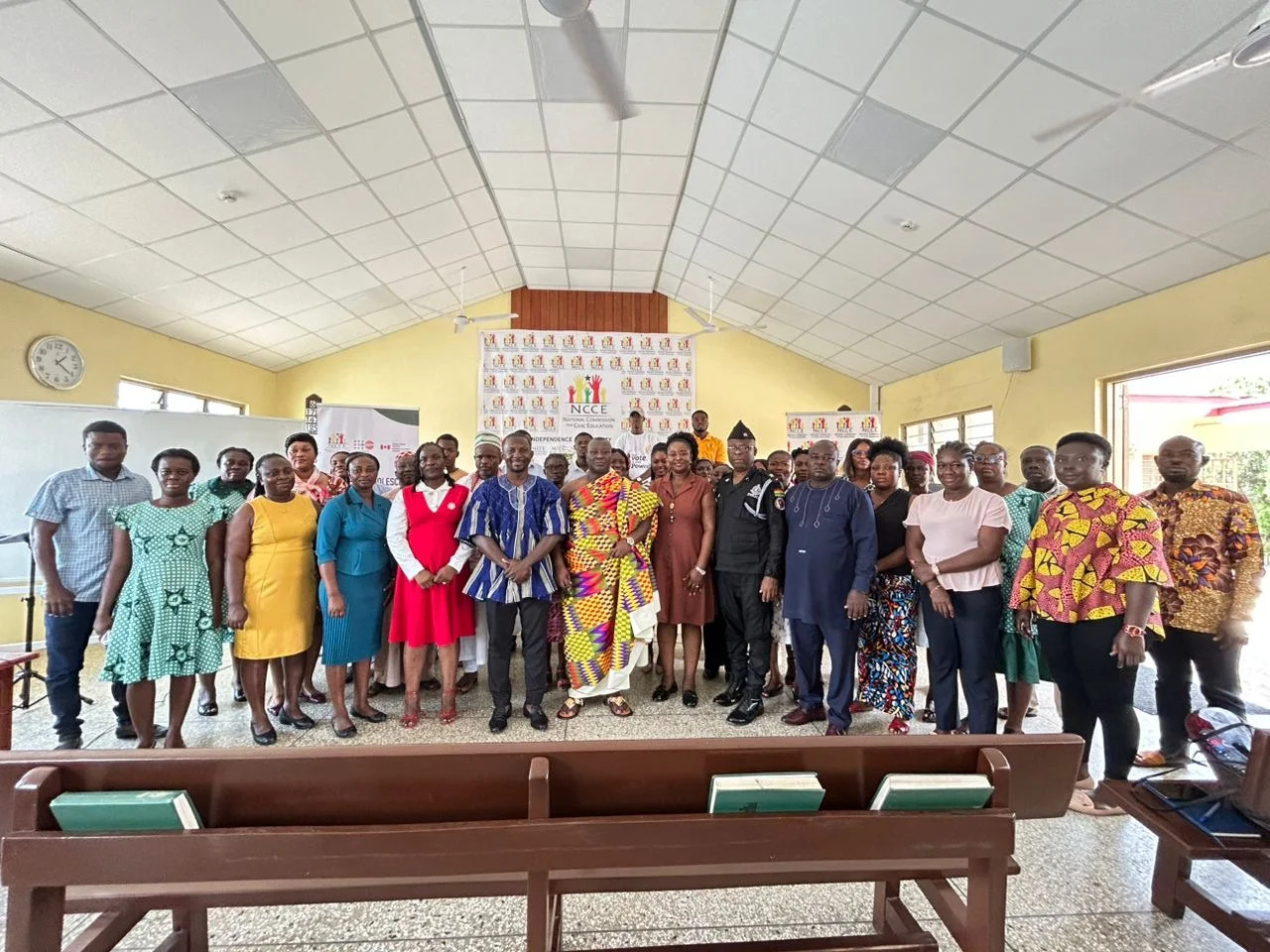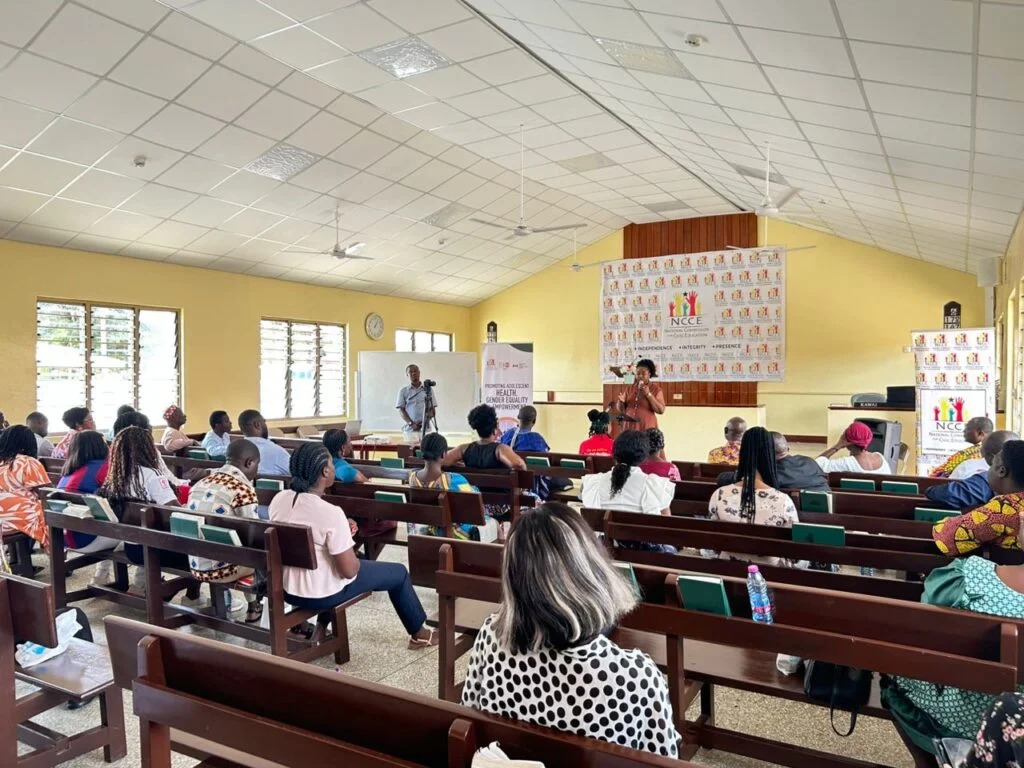The NCCE, with UNFPA support, is sensitising adolescents in New Juaben North to resist sexual abuse, gender-based violence, and harmful cultural practices.
The National Commission for Civic Education (NCCE) in New Juaben North, Eastern Region, has rolled out a comprehensive programme aimed at empowering adolescent girls and young people to resist sexual abuse and gender-based violence in schools and communities.
The initiative, supported by the United Nations Population Fund (UNFPA), comes at a time when cases of sexual abuse and exploitation of girls in educational institutions have raised national concern.
Hagar Ampah, Deputy Director, Programme Office at NCCE Headquarters, underscored the importance of protecting young people and vulnerable groups in society against all forms of gender based violence.
Speaking at a stakeholder engagement, the New Juaben North Municipal Director of NCCE, Ebenezer Acheampong, stressed the Commission’s constitutional mandate to educate the public on civic responsibilities and rights.
He explained that the programme had brought together traditional leaders, faith-based organisations, civil society groups, security agencies, and the media to collectively address adolescent health, gender equality, and protection
“In New Juaben, defilement, rape, and gender-based violence are major issues affecting our young people. These are criminal offences that must be reported to the police and not settled at home. Together with UNFPA, we have visited churches, mosques, schools, and communities to sensitise the public and empower our young ladies to speak up and seek help,” Acheampong said.
The programme also provided safe platforms for adolescents to engage health workers on reproductive health, family planning, and the dangers of harmful cultural practices.
Adolescent pregnancy continues to be a pressing concern in Ghana, with over 100,000 cases reported annually.
According to the 2022 Ghana Demographic and Health Survey, 15% of adolescent girls aged 15–19 have ever been pregnant. Experts warn that early pregnancies expose girls to health complications, stigma, and curtailed educational opportunities.
The NCCE’s initiative also tackles myths surrounding family planning and promotes community-based interventions to prevent gender-based violence.
Edith Asiedua, Public Health Nurse at the Eastern Regional Health Directorate, advised against abuse of emergency contraceptives due to its health complications.
Chief Inspector, Monica Agyemang, Eastern Regional Director of Domestic Violence and Victims Support Unit (DOVSSU), there are many laws that protect adolescent girls in particular and women at large from sexual and gender based violence, hence urged them to speak out and report to DOVSSU.
She also reminded the public that it’s a criminal offence for anyone with STI to have sexual intercourse with a partner without disclosing to him or her.
Key stakeholders, including chiefs, queen mothers, pastors, imams, youth leaders, health professionals, and security agencies, pledged to support the campaign by strengthening collaboration between communities and service providers, protect vulnerable young people, especially girls, while promoting equality, dignity, and safer spaces for the youth to thrive.
Source: starrfm


_
Follow us on our social media pages for more stories and posts from the NCCE.
https://www.instagram.com/nccegh/
https://www.facebook.com/nccegh/




Leave a comment